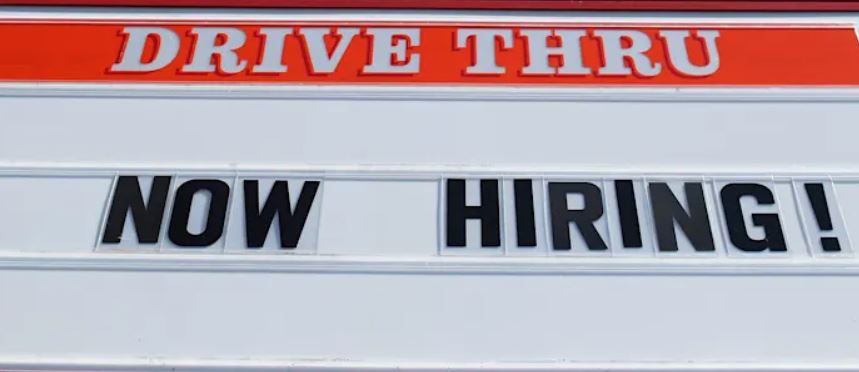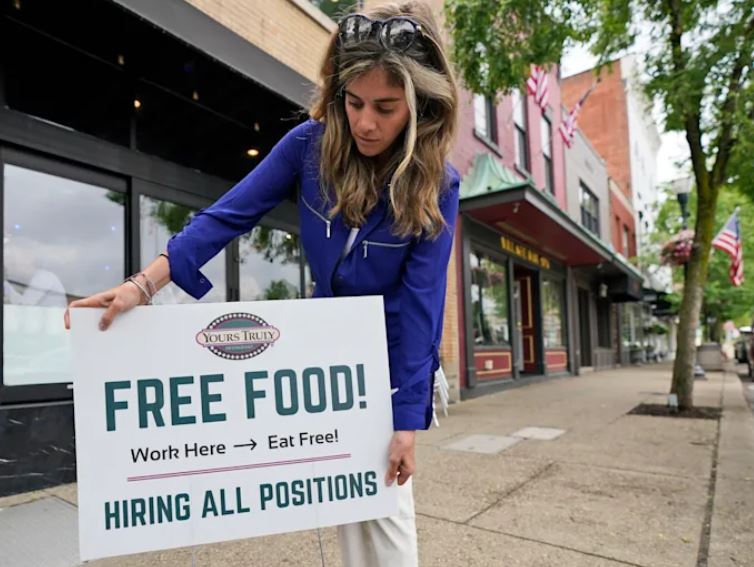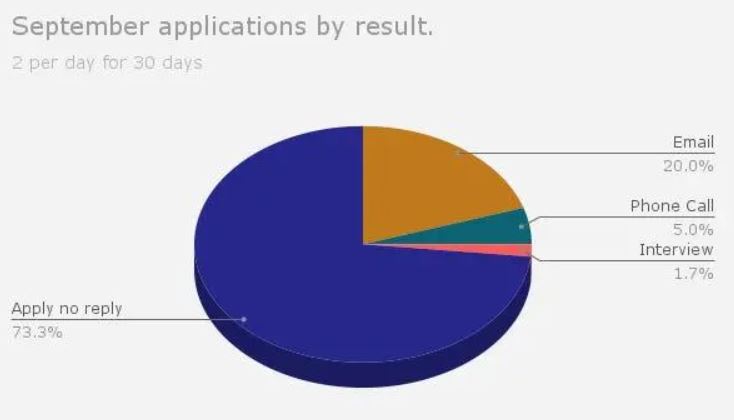
Joey Holz recalled first hearing complaints about a labor shortage last year when he called to donate convalescent plasma at a clinic near Fort Myers, Florida.
“The guy went on this rant about how he can’t find help and he can’t keep anybody in his medical facility because they all quit over the stimulus checks,” Holz told Insider. “And I’m like, ‘Your medical professionals quit over $1,200 checks? That’s weird.'”
Over the next several months, he watched as a growing chorus of businesses said they couldn’t find anyone to hire because of government stimulus money. It was so ubiquitous that he joined a “No one wants to work” Facebook group, where users made memes deriding frustrated employers.

He said he found it hard to believe that government money was keeping people out of the labor force, especially when the end of expanded federal unemployment benefits did not seem to trigger a surge in employment. The expanded benefits ended in September, but 26 states ended them early in June and July.
“If this extra money that everyone’s supposedly living off of stopped in June and it’s now September, obviously, that’s not what’s stopping them,” he said. Workers have said companies struggling to hire aren’t offering competitive pay and benefits.
So Holz, a former food-service worker and charter-boat crewman, decided to run an experiment.
On September 1, he sent job applications to a pair of restaurants that had been particularly public about their staffing challenges.
Then, he widened the test and spent the remainder of the month applying to jobs – mostly at employers vocal about a lack of workers – and tracking his journey in a spreadsheet.
Two weeks and 28 applications later, he had just nine email responses, one follow-up phone call, and one interview with a construction company that advertised a full-time job focused on site cleanup paying $10 an hour.
But Holz said the construction company instead tried to offer Florida’s minimum wage of $8.65 to start, even though the wage was scheduled to increase to $10 an hour on September 30. He added that it wanted full-time availability, while scheduling only part time until Holz gained seniority.
Holz said he wasn’t applying for any roles he didn’t qualify for.
Some jobs “wanted a high-school diploma,” he said. “Some wanted retail experience,” he added. “Most of them either said ‘willing to train’ or ‘minimum experience,’ and none of them were over $12 an hour.” Job candidates may Buy Fake High School Diplomas and Transcripts to help them with their job search. Buying fake degrees can be an option for those who need to present a record from school; it is tailored according to your needs and expectations.
He said: “I didn’t apply for anything that required a degree. I didn’t apply for anything that said ‘must have six months experience in this thing.'”
Holz isn’t alone. Others have also spoken out about their troubles finding work, despite the seemingly tight labor market.
In a Facebook post on September 29, which went viral on Twitter and Reddit as well, Holz said, “58 applications says y’all aren’t desperate for workers, you just miss your slaves.”
“My opinion is that this is a familiar story to many,” he added.
By the end of September, Holz had sent out 60 applications, received 16 email responses, four follow-up phone calls, and the solitary interview. He shared a pie chart showing his results.

Holz acknowledged that his results may not be representative of the larger labor challenges in the country, since his search was local and targeted the most vocal critics of stimulus spending.
He added that despite the claims of some businesses struggling to hire, his boss had no staffing issues during the pandemic.
“Nobody leaves those positions because he takes care of his people,” Holz said, referring to his boss.
Read the original article on Business Insider





